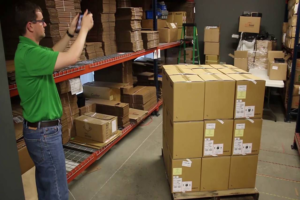Use LoadProof to Block Chain Enable Your Supply Chain – What does this mean?
Automatically perform the following:
- Send Blockchain transactions with pictures, when pictures are taken as a proof of delivery.
- Publish status updates of Shipments & Loads by sending Blockchain Transactions with pictures.
- Update smart contracts with Pictures residing in LoadProof cloud.
- Transfer Pictures as part of an ASN to depict that the merchandise was delivered in pristine condition.
- Share pictures of condition of the merchandise in a claims situation.
- Leverage OCR and capture data from the pictures into databases.







 1. Increases EPP, using budgeted line items.
1. Increases EPP, using budgeted line items. Millennial friendly technology, less onboarding time, very easy adoption – touch screen keypad, and 43% of Millennials already use IOS, familiar with Facetime, 85% of Millennials aged 18-24 own devices and 86% aged 25-34 own them, consume a lot of video on their smartphones, and are highly comfortable with this medium, they understand and like apps.
Millennial friendly technology, less onboarding time, very easy adoption – touch screen keypad, and 43% of Millennials already use IOS, familiar with Facetime, 85% of Millennials aged 18-24 own devices and 86% aged 25-34 own them, consume a lot of video on their smartphones, and are highly comfortable with this medium, they understand and like apps.